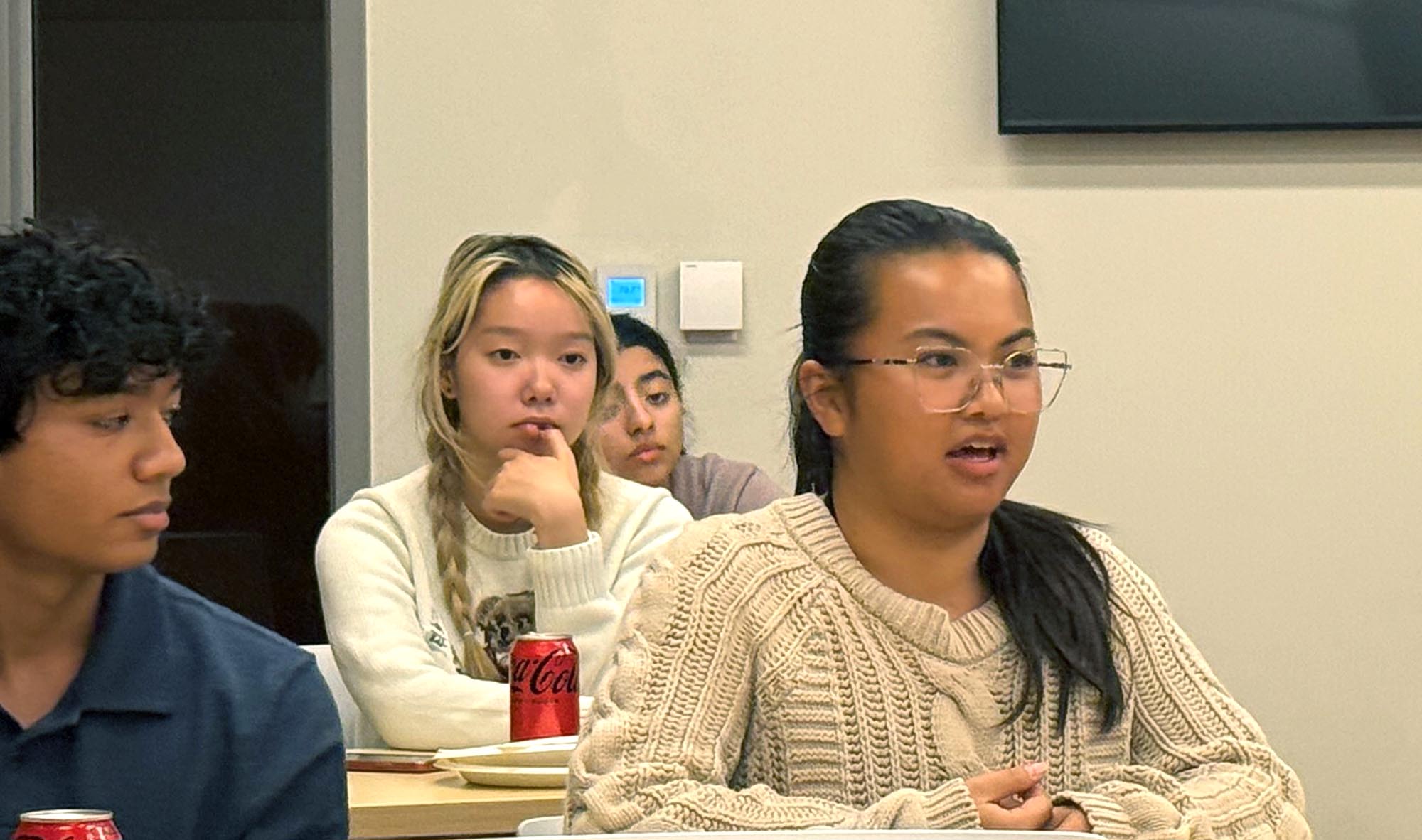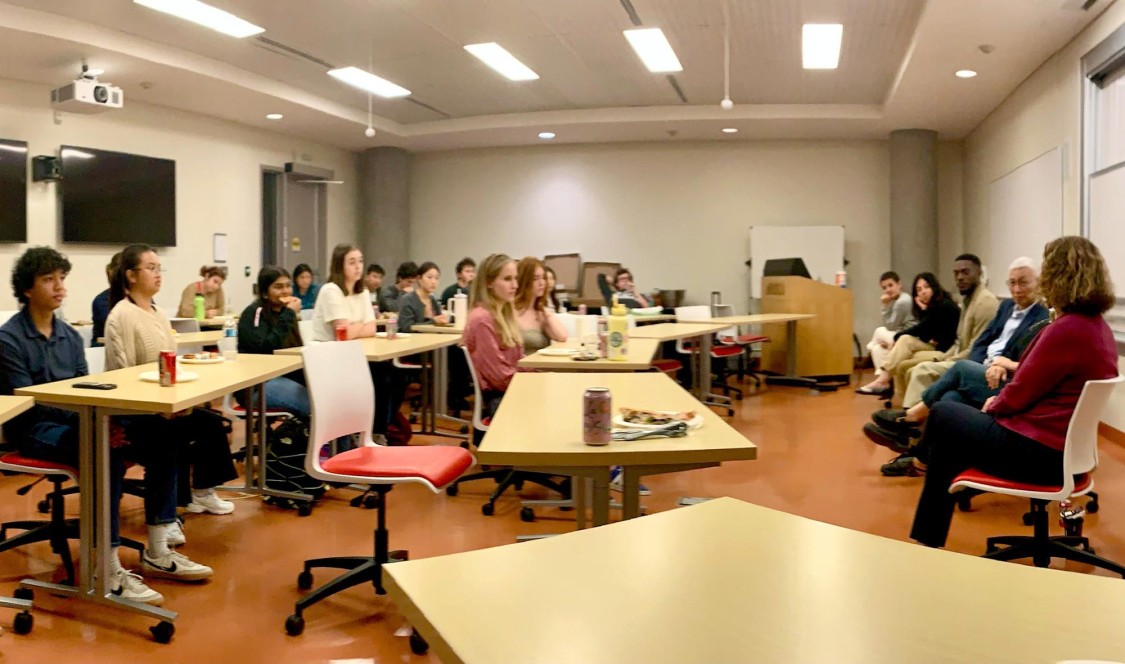Following the 2024 election, Claremont McKenna College’s Keck Center for International and Strategic Studies hosted a discussion exploring the impact that a second Trump presidency will have on U.S. foreign relations.
Members of CMC’s International Relations (IR) faculty delivered brief remarks on various policies and approaches that President-elect Donald Trump will pursue on the international stage once he takes office.
Professor Lisa Koch, who specializes in nuclear weapons and security studies, began by describing Trump’s foreign policy approach as populist and isolationist. She argued that this approach is not new, but has been part of the politics of American foreign policy at various times in U.S. history.
Meanwhile, Minxin Pei, Tom and Margot Pritzker ’72 Professor of Government and George R. Roberts Fellow, an expert on China, warned of rising Sino-American tension and the potential for a crisis over Taiwan under a Trump Administration that will pursue protectionist and hawkish policies. In a similar vein, Professor Jennifer Taw, Chair of the IR program, expressed concern that Trump—alongside Israel—may prosecute a war with Iran before Iran acquires nuclear weapons.
Professor Jessica Zarkin, who teaches courses on Mexican and Latin American politics, noted that Trump would likely use the threat of tariffs as a bargaining chip with Mexico to ensure cooperation on stricter border policies. Discussing global migration and other issues, Professor Jean-Pierre Murray, who focuses on global governance and international law, warned of a decline in multilateralism and the “liberal international world order” as a result of Trump’s rise. Finally, the Director of the Keck Center and an expert on Russia politics, Hilary Appel, Podlich Family Professor of Government and George R. Roberts Fellow, outlined Trump’s stated approach to dealing with the war in Ukraine, which she characterized as more dovish toward Russia than the Biden administration.
During the Q&A portion of the discussion, students conveyed a general sense of unease regarding how a second Trump presidency will impact America’s standing in the world—from its credibility amongst allies to its posture toward international law and human rights. Many students and faculty expressed concern that U.S. alliances will increasingly depend on personal relations with Trump and what other countries can offer, rather than longer-term U.S. strategic considerations.

Moreover, many of the professors responded to student questions about whether Trump can or wants to achieve all of his stated goals. Koch observed that Trump’s actions do not always align with promises made on the campaign trail. Appel pointed out that Trump’s proposed peace plan for the Russia-Ukraine war would constitute “political suicide” for Ukrainian President Zelenskyy while Pei noted that Trump’s proposed protectionist policies vis-à-vis China may be limited by business leaders such as Elon Musk, CEO of Tesla and SpaceX, who has direct contact with Trump and substantial investments in China.
Indeed, in answering student questions, many of the professors noted that several of Trump’s policies will be influenced by the people he surrounds himself with in his cabinet and executive agencies. From the appointments made so far, however, they noted that Trump has prioritized appointing largely inexperienced loyalists for key positions, including Secretary of Defense and Secretary of State.
“Where does that leave us?” was a common sentiment from students, many of whom are planning to work in government agencies, the foreign service, or IR-related fields, and were disheartened by what Trump’s win means for U.S. foreign policy. Addressing that sentiment—in a moment of rare optimism for the night—Professor Taw encouraged students to still pursue such work in the short term and urged them to learn how the system works so they can effect meaningful change later in their careers.

